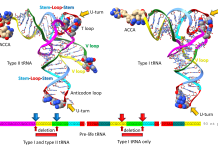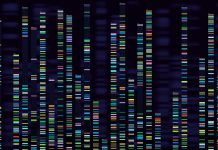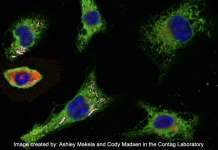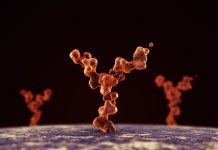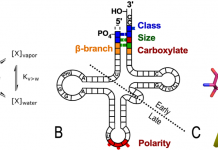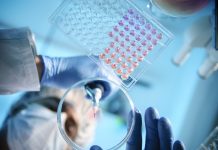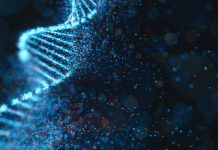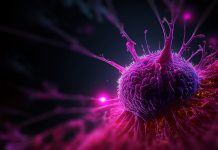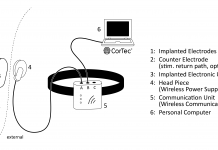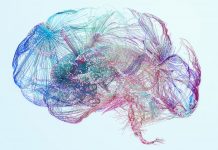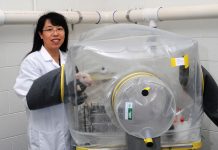Open Access Government produces compelling and informative news, publications, eBooks, and academic research articles for the public and private sector looking at health, diseases & conditions, workplace, research & innovation, digital transformation, government policy, environment, agriculture, energy, transport and more.
Home 2024
Archives
Transfer RNA as a written molecular history of the life transition on earth
Zachary Burton, Ph.D., Professor Emeritus, Department of Biochemistry and Molecular Biology, Michigan State University, reports on tRNA (transfer RNA) as a written molecular history of the pre-life to life transition on Earth ~4 billion years ago.
Artificial intelligence (AI) tools in genetics
Vessela Kristensen and Dag Undlien uncover AI tools in genetics, from variant recognition to clinical implementation.
Structural biology research and the origins of genetic coding
Charles W. Carter, Jr, Department of Biochemistry and Biophysics, University of North Carolina Chapel Hill, reviews the ways that recent research in Structural Biology, Biochemistry, Molecular Biology, and Phylogenetics have opened the origins of genetic coding to experimental study and their important implications.
Flame system: Computerised cognitive assessment for remote brain health monitoring
Monitoring brain health, particularly cognition, in older adults is increasingly recognised as a significant priority for research, healthcare and broader public health. Find out here about the development and validation of the FLAME System, a computerised cognitive assessment for remote brain health monitoring.
Protecting genetic diversity to benefit nature and society
There are three ways that governments and other conservation actors at all levels can monitor and protect genetic diversity, supporting the attainment of biodiversity goals and targets. But first, what is genetic diversity, and is there potential to safeguard it better?
Engineered endosymbionts as novel cancer therapeutics
Satyajit Hari Kulkarni and Christopher H. Contag from the Institute for Quantitative Health Science and Engineering focus on engineered endosymbionts, which they argue is a paradigm shift in anticancer bacteriotherapy toward killing tumors from the inside out.
Bridging brain barriers for gene therapy
Reflecting on the challenges in treating brain diseases, this article explores ways to transduce the blood-brain barrier as well as the critical role of tanycytes as a target for gene therapy vectors.
RNA and DNA flipons in health and disease
Flipons are the next step in DNA research. What they are, their role in DNA and RNA coding, their impact on medical science, and their relation to the immune system are discussed here.
High-resolution snapshots of antibody repertoires as potential correlates of protection
Klaus Eyer from ETH Zurich describes high-resolution snapshots of antibody repertoires as potential correlates of protection.
tRNA: The operational RNA code and protein folding
Charles W. Carter, Jr., from the Department of Biochemistry and Biophysics, University of North Carolina at Chapel Hill, relates molecular recognition used in genetic coding to structures of aminoacyl-tRNA synthetases and their cognate tRNAs.
Drug repositioning using multiple gene expression profiles
Chuo University’s Professor Y-h. Taguchi places focus on drug repositioning using multiple gene expression profiles
AI and modern experimental biology: A historical perspective
Ute Deichmann, Director of the Jacques Loeb Centre for the History and Philosophy of the Life Sciences at Ben-Gurion University of the Negev, discusses the adoption and limitations of Artificial Intelligence within modern experimental biology.
Personalized medicine: “Tyranny of the gene”
Dr Priya Hays, Ph.D., CEO/Science Writer at Hays Documentation Specialists, LLC, responds to “Tyranny of the Gene.” Is personalized medicine a threat to public health? Not really, but yes, it’s an argument for price controls and perhaps more regulations; we hear.
Understanding T lymphocytes inner workings to harness therapeutic potential
Leslie J. Berg, PhD from the University of Colorado, Anschutz School of Medicine, sheds light on understanding the inner workings of T lymphocytes to harness their therapeutic potential.
Harnessing redox power for biotechnological application in purple non-sulphur bacteria
Here we explore purple non-sulfur bacteria (PNSB) and some of its biotech applications, with a focus on how these applications have been enhanced by manipulating the flow of reducing power.
Controlling ovarian cancer: An introduction to detection and treatment
With current strategies proving inadequate, what needs to be done is to further the research into detecting, treating, and controlling ovarian cancer.
Probing the individuality of cells and molecules
Sotaro Uemura, Professor at the University of Tokyo, probes the individuality of cells and molecules.
Options for stroke survivors: From stroke to conventional therapy
Discovery of novel treatment options for stroke survivors – requirements for implanted systems.
Innovative gene therapy approaches for brain tumour-related epilepsy
Professor Mark Cunningham and Dr Kate Connor from Trinity College Dublin discuss the burden of brain tumour-related epilepsy and why novel therapies are urgently needed to improve the quality of life for those affected.
Gnotobiotic pig models: Illuminating the enigma of human norovirus infection and immunity
Dr Lijuan Yuan and her team have studied human noroviruses (HuNoV) in gnotobiotic pigs for over 15 years. Here, she explains how such research is advancing our understanding of HuNoV pathogenesis, infectivity, and immunity.

